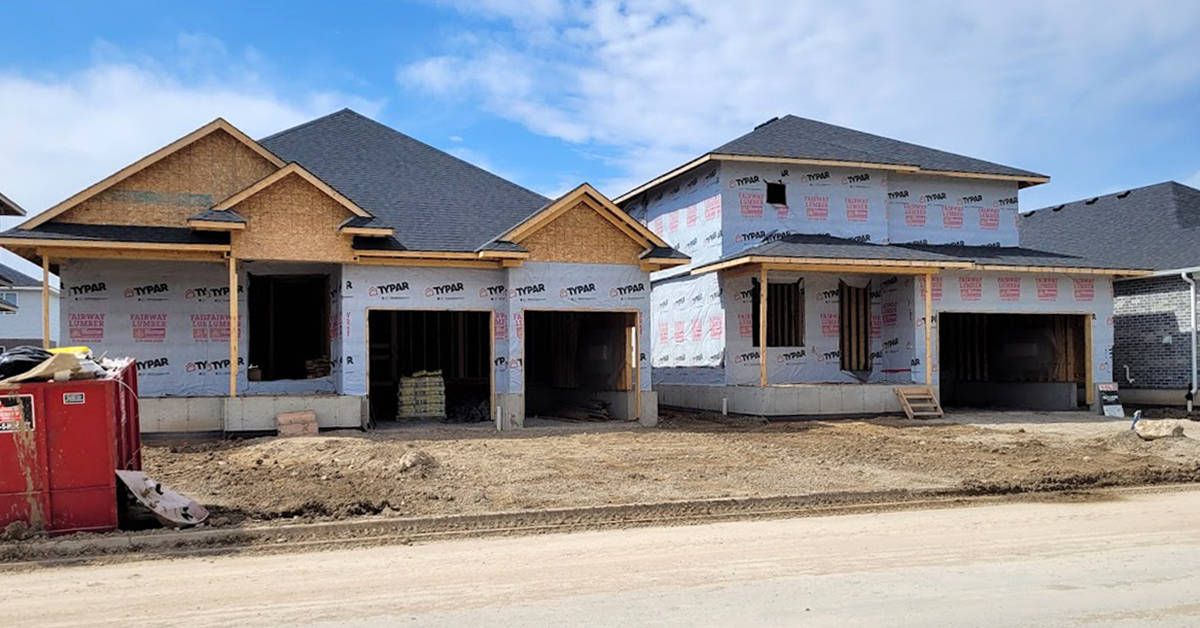Speeding up the process will allow developers to build more homes more quickly, leading to lower prices, the province stresses in its latest effort to ease Ontario’s affordability crisis, the More Homes for Everyone Act.
Among its measures, the new bill would impose penalties on municipalities that slow down the process by which developers seek to rezone land and obtain permissions to build new homes.
The legislation introduced last week draws on the industry-led Housing Affordability Task Force that concluded an increased supply was the route needed to make housing more accessible to Ontarians. That group called for the construction of 1.5 million homes over the next 10 years.
“When you look at supply versus demand, this is a classic case of that: we just don’t have enough homes on the market,” said Kitchener-Conestoga MPP Mike Harris of the rationale for the bill.
“It’s really about trying to figure out ‘how do we get more homes on the market, more affordably?’ I’ll use Waterloo Region as a more specific example: the average house right now is selling in about eight days, and looking at a single detached family home, the average price is a little over $1.1 million,” he said, citing the desire to cut red tape as a principal goal of the act.
Along with boosting supply, the More Homes for Everyone plan takes aim at speculation in the housing market, increasing the non-resident speculation tax rate to 20 per cent, expanding the tax beyond the Greater Golden Horseshoe to apply province-wide and closing loopholes to fight tax avoidance. The tax applies to homes purchased anywhere in Ontario by foreign nationals and corporations. The province also plans to crack down on land speculation and protect home buyers. This is in response to feedback the province solicited from municipalities regarding projects that are approved by the municipality, but unbuilt by the developer.
While the new legislation takes aim at bottlenecks on the municipal end, delays aren’t always the result of the planning process, says Woolwich’s manager of planning, Jeremy Vink, who adds that good planning does require time.
“We try to be as efficient as possible. I know we’re never as efficient as people want us to be and as fast as people want us to be to get things approved, but we try to work as best we can to get things moving through at a reasonable pace,” he said.
The process requires public input, review of documents and assessment of impacts, especially with larger subdivisions that require zoning changes and amendments to the municipality’s official plan. On top of that, there’s a council process.
“A lot of the things that they’re putting in [the legislation] is ‘how do we move things faster through site plan and zoning and subdivision approval,’ but we try to balance giving council information to make an informed decision,” said Vink.
To encourage municipalities to speed up the process, the legislation sets targets after which developers are entitled to refunds on the fees they pay for the likes of rezoning application, up to a maximum of 100 per cent after 180 days.
That will likely place more pressure on planning staff and council, said Vink, noting there will be a spill-over effect on commenting agencies such as the Grand River Conservation Authority and the Region of Waterloo.
The new rules may lead to more development in the GTA, but are unlikely to have an impact in the townships, he predicted.
“I don’t think it’s going to change much on the supply in a local municipality like Woolwich, a smaller municipality,” said Vink. “I don’t know that’s going to do much for us.”
Municipal governments have expressed reservations about changes to the planning process throughout the province’s consultations, including the Housing Affordability Task Force, with some arguing the measures are too developer-friendly.
Minister of Municipal Affairs Steve Clark acknowledged municipalities need to be brought on board in rolling out the More Homes for Everyone Act on March 30.
“If we’re going to deal with the housing crisis in Ontario, we need to have them in our corner, and we need to have them implementing the policies that make sense,” Clark said. “They aren’t there yet.”
Given that many development issues end up in legal action, the province is also looking to reduce the backlog of cases at the Ontario Land Tribunal (OLT) and the Landlord and Tenant Board, allocating $19 million to that file.









